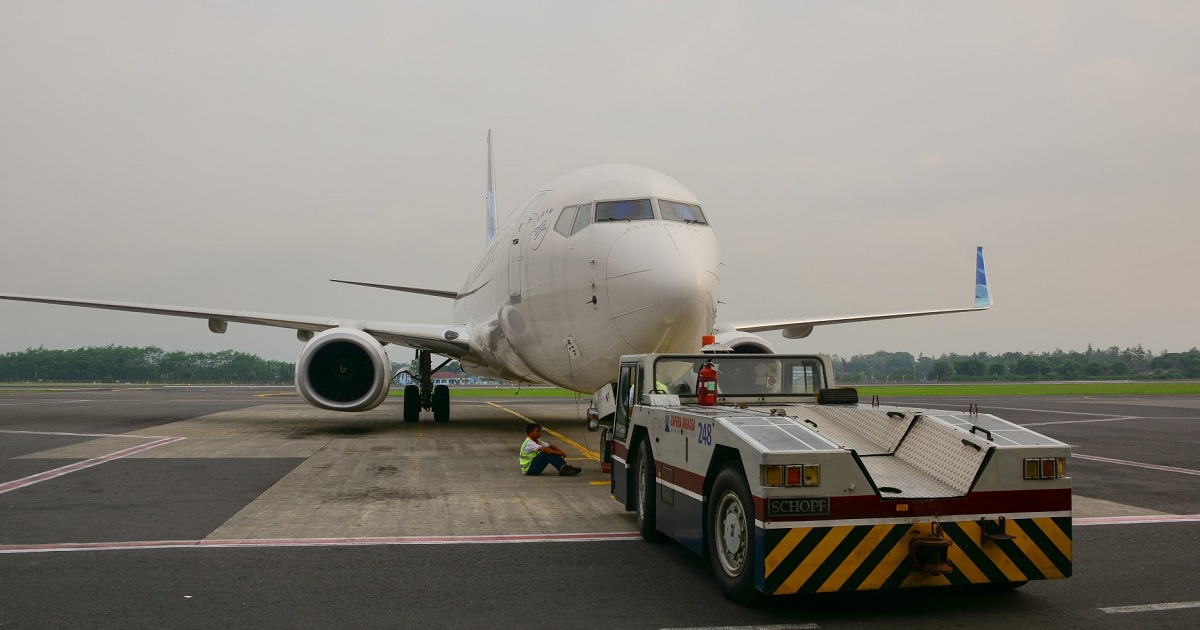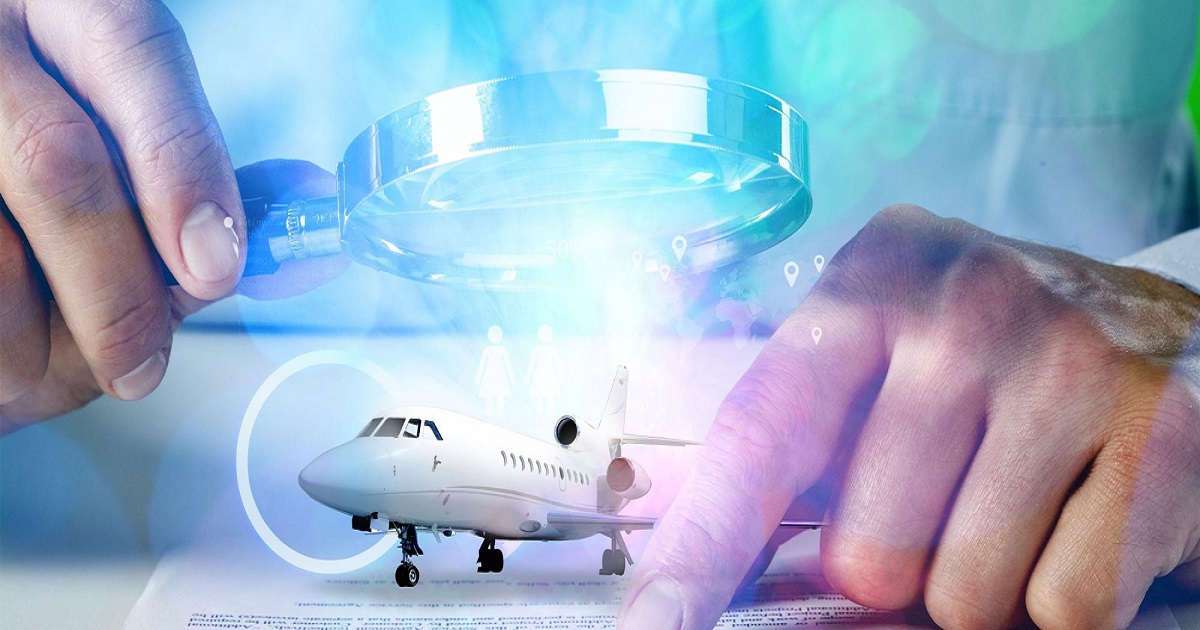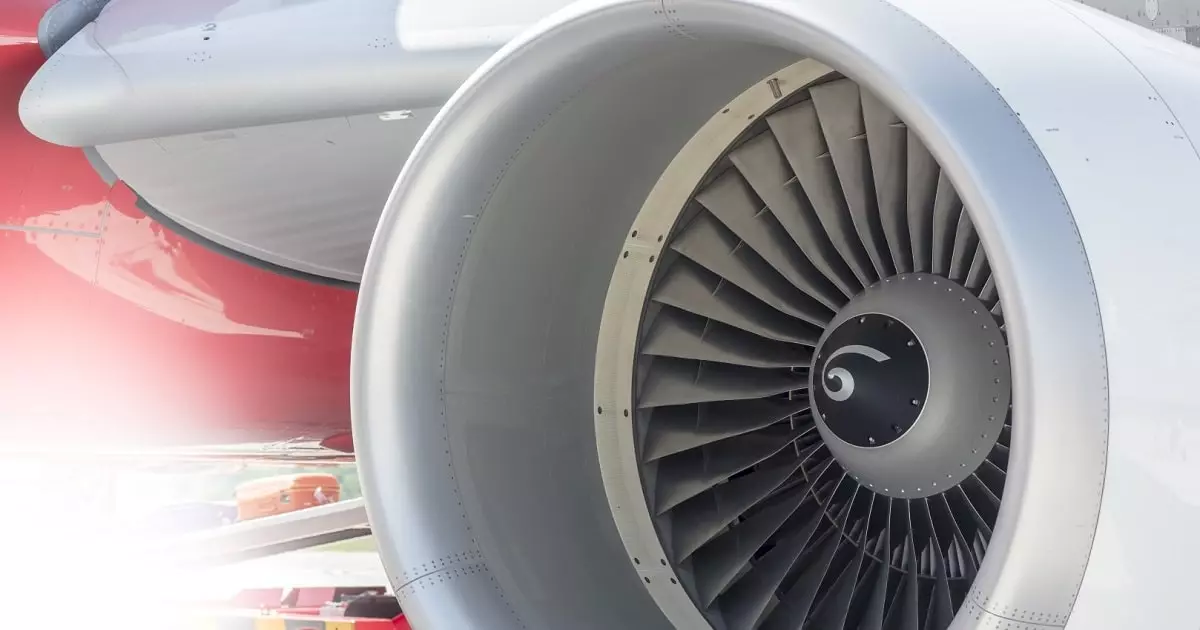
Air Transport
Article | July 6, 2022
The pandemic has caused a deeper level of disruption, which brought the aviation industry to a standstill for months. After facing long months of hardship, what vision and steps will be for airline recovery? This is a significant concern. This would now require complete planning over some crucial areas that form the pillars of the aviation industry.
It is especially airline businesses that require a novel set of advancements to build operational confidence. As the industry is rebooting, technology is benefiting. Be it robotics, IoT, biometrics, seamless integration, automation, and more will aid businesses and their processes.
Therefore, the industry’s next vision is being set according to the evolving changes in the airline industry due to covid-19. It will establish resilience and flexibility for businesses to adapt to changing conditions while improving efficiency.
Here are the key considerations that will be seen as airline recovery curbing airline challenges to plan new avenues beyond 2021.
Collaboration
Collaboration in the aviation business landscape has been the most important consideration after the pandemic affected the industry. Keeping the vision of collaborating with stakeholders and the commercial airline industry to focus on business and customer confidence will restart operations safely.
Collaboration in the future will have a better grasp and be more efficient because of better coordination of data sources being introduced currently. Collaboration becomes even more crucial in the coming years, where you will need updated and accurate information about your business operations. This vision will enhance chances of the following aspects as well:
Customized Experience
Leading to the modifications happening in the industry, you will be able to offer customized services to customers. Advanced integration functionalities will allow forming a contactless and personalized experience to curb the challenges prevailing. Providing transparent and reliable information to customers is one of the critical aspects of airline recovery and rebooting happening now. This is why a customized experience will aid airline businesses more safely in the coming years.
Personalization
Today, airlines, governments, and stakeholders are developing best practices for the immediate future of business with a greater focus on personalization throughout the service journey. It will help attract potential customers and end the general approach, which the industry was practicing before the pandemic.
Monitoring
To design a post-pandemic business model, you can look at the types of technological solutions and processes that have already been started and would emerge beyond 2021.
It has been envisioned that airline industry analysis, coupled with monitoring, would allow businesses to manage resources more efficiently. In this way, deployment of the technology stack will be more accessible according to the need. This will strive to reduce crowds at airports and, therefore, effective management with the help of predicted monitoring will be in action.
Digital Solutions
The new normal in the aviation industry, using technology, would continue to ensure physical contact is diminished or might be eliminated in the future. Mandatory digital checks, implementation of digital platforms, contactless services, and information collected through mobile devices are some elements of the new business models. The industry's vision in the coming years is to demonstrate how it can use digital technology for transformation at scale.
Advanced Processing System
The next, the aviation industry foresees, is utilizing technology for automation, security, identity management, and robotics. Using these, you can develop attractive yet safe experiences for staff as well as customers. The advancing data processing system and management offer a seamless module for companies to handle risks, controls, handling, and tracking. The inclusion of the advanced system at the airport, airline companies will make the process function efficiently. And because of optimized coordination through automated touchpoints, chances of an increase in revenue will be higher and faster than before.
Remote Processing
The continuous advancement of airline activities will significantly support capacity limitations in the coming years. Because of this, you will have safer processing of data and information without any threats or breaches.
The pandemic has put greater focus on the need for such a flexible approach with resilience. Also, it brings urgency to the availability of technology to use while going remote so that you can provide flexibility to your employees to work frictionless.
The industry's vision in its plan is to unlock the full benefits of technology to access and initiate global coordination remotely.
A Changed Way to do Business Today—Sustainability
Companies operating in the airline business are still understanding to survive in the times of COVID-19. Being fast and evolving is the only way they realized to fight against the current situation.
The new normal is bringing changes in the airline industry post covid. This will help the industry to get back its wings to forecast and set up its next vision in the future.
Therefore, industry stakeholders need to quickly put immediate business restart efforts to focus on sustainable implementations. This will make the future actions of the aviation industry monitor and evaluate effectively well in response to the ongoing pandemic. Also, it would help them be ready to face even harsh circumstances if anytime it approaches.
Frequently Asked Questions
What are the risks to the aviation industry during COVID-19?
The level of risk is on the rise in the COVID-19 situation at present in the aviation industry. It may affect the operation, new business models, management, monitoring, and evaluation more as remote work culture is hyped.
What are the main sectors of the airline industry that need improvement?
There are limited sectors in aviation. However, the main ones that need improvement are commercial aviation and business aviation.
What are the crucial areas of operation in the aviation industry?
Flight operations are crucial, including operation control, connectivity, network, data handling, integration, maintenance planning, and software.
{
"@context": "https://schema.org",
"@type": "FAQPage",
"mainEntity": [{
"@type": "Question",
"name": "What are the risks to the aviation industry during COVID-19?",
"acceptedAnswer": {
"@type": "Answer",
"text": "The level of risk is on the rise in the COVID-19 situation at present in the aviation industry. It may affect the operation, new business models, management, monitoring, and evaluation more as remote work culture is hyped."
}
},{
"@type": "Question",
"name": "What are the main sectors of the airline industry that need improvement?",
"acceptedAnswer": {
"@type": "Answer",
"text": "There are limited sectors in aviation. However, the main ones that need improvement are commercial aviation and business aviation."
}
},{
"@type": "Question",
"name": "What are the crucial areas of operation in the aviation industry?",
"acceptedAnswer": {
"@type": "Answer",
"text": "Flight operations are crucial, including operation control, connectivity, network, data handling, integration, maintenance planning, and software."
}
}]
}
Read More

Air Transport
Article | July 15, 2022
While countries continue to implement new Omicron-related restrictions in response to the rising number of cases globally, a majority of these are in the form of enhanced COVID testing requirements – not travel bans. As a result, travel demand for popular peak-season destinations has remained strong, and over the past few days we’ve seen a BIG INFLUX in bookings as news trickles out that Omicron may be a less severe variant.
If this continues, we expect to see another prolonged booking surge, so plan accordingly and get your requests in ASAP for best options – especially parking and hotels. While the new U.S. 24-hr testing requirement for return travel is tight, it’s not a big deal if you are prepared with an approved at-home testing kit (like Abbott BinaxNow, Qured, Ellume, etc.). Alternatively, our Trip Support Teams can help you identify testing providers abroad.
Looking ahead to your missions in 2022, you may want to consider On-Aircraft COVID Testing for your N-registered aircraft. It’ll make international COVID testing MUCH easier on you and your passengers when at-home testing kits aren’t an option.
Read More

Business Aviation
Article | January 28, 2022
The global airline industry is currently going through unprecedented financial damage. A few factors contributing are high operational costs, increased security costs, low customer satisfaction, low revenue, and frequent dynamic shifts in air travel.
Hence, it’s a high time for airlines businesses to resolve their multitude of issues for its economy to recover. To leverage this goal, the industry should leverage its most high-volume asset—analytics. Analytics will help drive the airline industry's growth rate in the coming years.
It’s because, Developing new data applications will bring a handful of digital marketing opportunities in the next five years. And these applications will bridge the gap in the industry.
Welcome to the New Age of Analytics
This topic of discussion is not new. But the new thing about analytics is that it is changing the airline industry data collection process. Analytics has become an essential part because the pandemic has forced countless non-digital airline businesses to shift to online operations.
Advanced analytics with innovative data technologies is becoming popular due to its numerous applications. To name a few, it provides smart management abilities and a proper decision-making system. So, to get a hand over this, marketers should have a razor-sharp focus to upgrade their analytics.
With advanced analytics, airlines can deliver the right information to the right audience at the right time. And when customers access the right information efficiently, they turn into prospective clients. In addition, by using analytics as part of online operations, airlines can survive without a dedicated offline presence.
With the digital transformation happening in the aviation industry, it at a turning point. The situation now is an “adapt or die” one. This policy is generating opportunities for airlines that are making significant changes to their current old business model. However, such a transformation is only possible when analytical technologies are fully adapted. This way, marketers can easily capitalize on operating online by being agile and have adaptable tools.
How can Marketers Adapt Analytics?
As a marketer in the digital era, you need to organize data with the help of technology. By organizing data, you can easily collect data from channels such as social media, loyalty programs, and other online forums. Here are some to use Analytics to empower digital transformation:
Power of Personalization
Digital technologies offer marketing and sales opportunities in direct and indirect channels. For supplies and buyers, this means they can establish greater contact with consumers. It will result in a significant way to sell and buy more products. However, you can take customer interaction a step further by offering personalized offers and discounts with analytics.
Investing in Loyal Customer Base
The most important digital opportunity comes from loyalty programs. Offering it can provide marketers with substantial amounts of customer information. Additionally, there are three other focus areas where you can use analytics:
Partnership with leading technology providers
Enhancing content
Cost maintenance
Investing in these customer-centric areas using analytics will gradually deliver proven results.
Empowering Strategies using Analytics
The next step is to develop a comprehensive data platform strategy by including a data integration layer. By combining traditional and new data sources, this layer will make a flexible and more accessible data architecture to scale airline industry data. This will allow marketers to gain insights into their changing customer behavior.
Hence, adding a data integration layer will also need considerable effort and investment to deploy a cloud platform, an analytic-data-warehouse layer, and a team that maintains the data platform.
So, what are the Exact Ways Analytics is Going to Help Marketers?
Cost reduction:
The advanced airline industry analysis will help in making cost reductions. Whether it is from fuel consumption, deploying technology, or smart manufacturing, analytics can solve cost-related issues at once. For this, airline businesses must deploy AI systems with machine algorithms, which will help marketers to collect the exact data. Then they can easily analyze the estimations and can reduce them as per the requirements.
Customer Satisfaction
The addition to cost reduction, predictive analysis can help by keeping customers up-to-date in real-time. You can enhance Customer satisfaction by promoting offers based on their demand. Once you can have genuine insights and information about your customers and understand their behavior beforehand, you can approach them with the right message, solutions, and services by giving the right reason to invest.
Most importantly, predictive analytics will help speed up the response rate to customers' queries and solve them in no time. Today the response speed matters because airline customers are constantly shifting their travel behaviors. As a result, they now seek customized approaches compared to the traditional approach.
For example, Delta Airlines deployed advanced predictive analytics with AI. They optimized their operations through innovative customer services. Delta Airlines invested a whopping $600,000 for automation software installation. The investment was successful as they were able to access their data effortlessly and were able to connect with their customers by offering them multitude of offers.
Performance Attributes
Today, airline companies need prompt and accurate performance measurements to take critical, appropriate, and timely actions. Big data analytics can automate certain daily activities. The activities such as prospects' queries, website visitors, landing page hits, and more can be watched daily or weekly. With big data being so effective it will also help you understand the core ingredients for revenue generation. In the end, such advancement will stimulate airline industry data growth.
Risk Protection
This is of utmost importance for the airline industry's growth rate. You can develop various innovative models and strategies and avoid risks while implementing them using Advanced Data Analytics.
The risks could be like a data breach, technical factors, organizational operations, customer data, and more. To counter back these risks, you should have proper strategic or annual safety objectives. Advanced analytics have higher levels of excellence that alleviate performance drifts. It will also help you to achieve and maintain through a proper monitoring and testing system.
For example, British easyJet has diminished its operational challenges using AI. With the help of IT, it used data science to improve its pricing strategy, manage inventory, and lowered risk factors. As a result, the company observed an increase in profits of almost 20% in 2021.
What’s Next for You with Analytics?
Marketers should be astute and apprehensive about Analytics. Understanding the upcoming trends of analytics are vital. In addition, the current situation also demands a holistic approach that supports technology (digitalization). Having appropriate approaches will lead you to stand out in this competitive industry.
Taking advantage of data for your existing or potential customers can help you to recognize more information about their activities. So that you can include more innovative techniques and can attract potential leads before they are gone. With technically sound data analytics you can experiment with different customer-centric strategies like:
Building responsive landing pages that get fit in every screen
Being more flexible with your prospects and enhancing interactions either through social media or a website.
Creating platform-specific content to improve customer interaction.
The strategies mentioned above will help you in collecting more data and curating on-demand content/information. By adopting these strategies, you can provide a data-backed open online platform in which you can easily connect with your customers.
Once you have grabbed the technique for your digital marketing needs, tapping big data solutions will be a much better way than before. Therefore, it is crucial to keep legacy thinking aside and welcome innovation onboard.
Frequently Asked Questions
What is the importance of analytics in the airlines business?
Analytics play a vital role in airline businesses. It helps in cost reductions, which could result in investing in better ways. Also, data helps to avoid breaches, provide safety measures, collect huge amounts of information, and enhances operational functionalities.
Does analytics require proper strategies to function in an airline business?
Yes! To implement analytics in your airline business, you need a strategic approach. Analytics provides statistical analysis. Using it, you can investigate and analyze business performance and give insights about improvement as well.
What are the different types of analytics used in the aviation industry?
There are three types of analytics that airline businesses use:
Descriptive analytics: It tells the current business operation
Predictive analytics: It shows what could happen in real-time
Prescriptive analytics: It shows what should happen in the future.
{
"@context": "https://schema.org",
"@type": "FAQPage",
"mainEntity": [{
"@type": "Question",
"name": "What is the importance of analytics in the airlines business?",
"acceptedAnswer": {
"@type": "Answer",
"text": "Analytics play a vital role in airline businesses. It helps in cost reductions, which could result in investing in better ways. Also, data helps to avoid breaches, provide safety measures, collect huge amounts of information, and enhances operational functionalities."
}
},{
"@type": "Question",
"name": "Does analytics require proper strategies to function in an airline business?",
"acceptedAnswer": {
"@type": "Answer",
"text": "Yes! To implement analytics in your airline business, you need a strategic approach. Analytics provides statistical analysis. Using it, you can investigate and analyze business performance and give insights about improvement as well."
}
},{
"@type": "Question",
"name": "What are the different types of analytics used in the aviation industry?",
"acceptedAnswer": {
"@type": "Answer",
"text": "There are three types of analytics that airline businesses use:
Descriptive analytics: It tells the current business operation
Predictive analytics: It shows what could happen in real-time
Prescriptive analytics: It shows what should happen in the future."
}
}]
}
Read More

Business Aviation
Article | January 28, 2022
The UK government has announced that from 11th February, fully vaccinated passengers arriving into the country will no longer have to take COVID-19 tests on arrival. The news follows the removal of pre-departure testing for fully vaccinated UK-bound passengers this month.
The relaxation of testing measures is something the aviation industry has been actively campaigning for, as it removes barriers to travel. Just today, IATA distributed a press release advocating for similar moves to be made by further governments. It cited a study focused on the UK carried out by Oxera and Edge Health which found that because Omicron is now highly prevalent in the UK, “if all travel testing requirements were removed there would be no impact on Omicron case numbers or hospitalizations.”
Read More